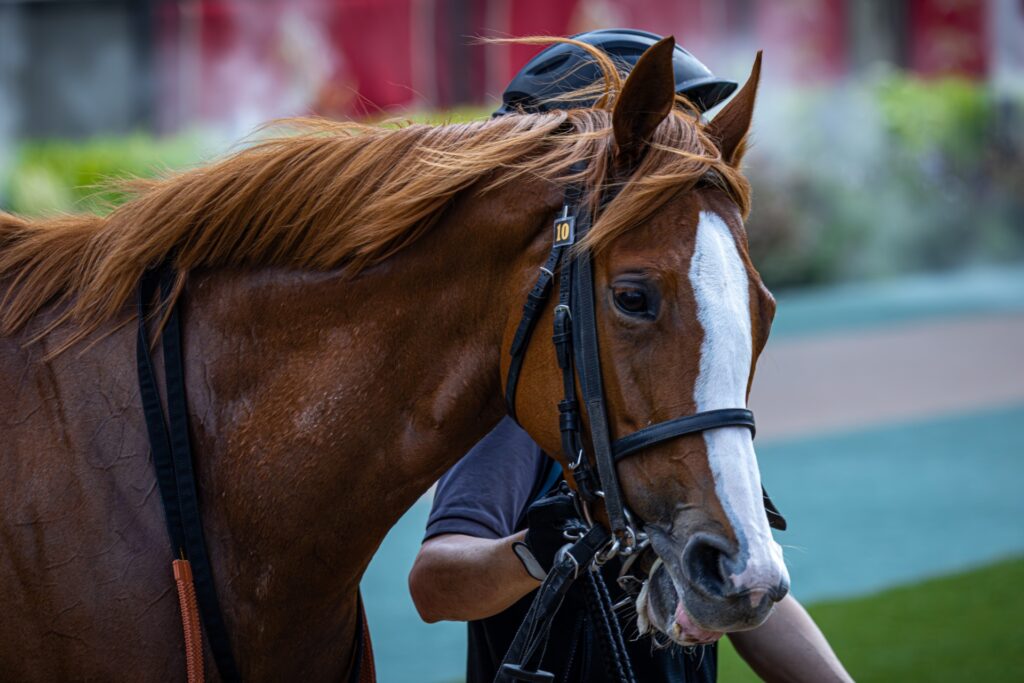Thinking of owning a racehorse? Find out what it really costs to make this dream a reality. From the purchase price to training, daily care, and competition fees, we cover all the essential expenses.
Get informed and see if you’re ready to take the reins!
Purchase prices of racehorse breeds
The purchase price and initial investment of a racehorse can vary greatly depending on the breed, lineage and individual characteristics of each horse. The following table shows typical prices for popular horse breeds:
| Horse breed | Approximate purchase price |
| Thoroughbred | £100,000 – £300,000 |
| Arabian | £25,000 – £150,000 |
| Quarter Horse | £20,000 – £50,000 |
| Standardbred | £10,000 – £60,000 |
| Appaloosa | £5,000 – £25,000 |
Lineage, stud farm of birth and/or breeding, performance history and expectations of success on the racetrack, gallop or show ring can significantly increase these prices.
For example, a Thoroughbred or Quarter Horse of proven lineage and racing records can exceed $500,000, especially if he has a winning pedigree.
Additional ownership costs
The acquisition cost is just the beginning and initial investment. For a horse to maintain its health, quality of life over the years, condition and performance on the track, it is critical to ensure that it receives proper care. Now, let’s explore all the necessary expenses involved:
1.Maintenance
Daily care of the horse includes both feeding and other aspects fundamental to its well-being. Monthly expenses may include specialized feed, supplements, vaccinations, veterinary costs, stables for boarding and insurance for the owner’s and the animal’s own peace of mind in case of accidents or unforeseen health problems.
| Expenditure category | Approximate monthly expenses |
| Feed and supplements | £500 – £800 |
| Hay | £150 – £300 |
| Veterinary care | £300 – £500 |
| Basic vaccinations | £40-£60 average monthly cost (These are 8 basic with two annual doses for a total of 16 at a value of between £640 and £960 per annum) |
| Farrier services | £150 – £200 |
| Housing and stabling | £700 – £1,200 |
| Equine insurance | £200 – £400 |
| Other expenses* | £100 – £200 |
2. Racing expenses
In addition to the daily and monthly maintenance we have already mentioned, each race or equestrian event in which a horse participates involves additional costs. These range from entry fees for participation in competitions to the payment of qualified trainers.
At this point, prices can vary greatly according to the type of event and its fame and to the trainer and his performance based on animals that have already passed through his hands and specific records.
Training
| Expenditure category | Approximate price (monthly) |
| Trainer’s fee | £1,500 – £3,000 |
| Jockey fee | £250 – £500 per race |
| Training facilitie | £200 – £$400 |
| Other expenses | £150 – £250 |
Training is a constant investment and professional trainers work with the horse on running, cantering, jumping, endurance and agility techniques in each category. For their part, jockeys receive a fee each time they compete in an official race and in these cases the experience and credit of the jockeys determines their payment.
Competition
| Expense category | Average cost (per race) |
| Registration | £500 – £1,000 |
| Transportation | £500 – £1,200 |
| Lodging | £300 – £600 |
| Race insurance | £150 – £300 |
| Jockey’s fee | £500 – £1,000 |
| Other costs | £100 – £200 |
Registration and transportation fees represent significant additional expenses. The first is for transportation from the stables to the event site each time the horse competes.
If the horse travels to events outside its city or country, these expenses increase. Lodging costs also fluctuate because they include the place where the horse usually lives (in case it is not in a place owned by its owner) and where it will be for the duration of the competition.
This includes food and expenses not only for the animal, but also for the accompanying personnel. In addition, it is necessary to observe the specific insurances for transportation (inside or outside the city or country) and eventualities in the competition.
In annual terms, the costs of owning a racehorse can range from £20,000 to £50,000. The total amount will depend on the frequency of competition, the venue, the level of care and training required in each case.
What factors influence the price of a racehorse?
Some factors can significantly influence the price of a racehorse:
- Genealogical tree of the horse: horses have their ancestry and descendants. For this, there are semantals or specimens recognized as winners with records will be more expensive than those without famous parents.
- Pedigree: a pedigree lineage with a history of champions raises the value of the horse, as it is expected to inherit genetically superior abilities from its parents.
- Training and performance: A history of professional training and previous victories adds value to the horse.
- Age and health: young horses in good health have more potential for success, and this increases their market value. However, on a case-by-case basis, an older (but not elderly) horse with an ironclad health and winning record can also command a high price.
- Market trend: The popularity of certain types of horses may vary according to the economic context and the interest and relevance of equestrian events.
- Place and source of purchase: Horses purchased at auctions or from prestigious breeders tend to be more expensive.
How to get the best price for a racehorse
There are several strategies for acquiring a racehorse at the best price, from buying it at auctions to acquiring it directly from private owners.
Fairs and exhibitions
Trade shows or special exhibitions allow different horses to be evaluated in a professional environment. Buyers can examine the animal’s health, temperament, behavior, get expert opinions and decide whether to buy or not.
Claiming races
Claiming races are events in which horses can change owners before or after the event. In this case, the equines that are for sale may (or may not) have special prices.
This method allows you to acquire horses that are active on the track and already familiar with the corresponding horse racing competition. Learning all related details before buying a horse is a good way to maximize the return on this type of acquisition.
Auctions
Auctions are an ideal resource for acquiring high-performance, pedigree-proven horses at lower than usual market prices. At these events, competition is intense and prices usually reflect the competitive potential of each animal.
Private owners
Acquiring a horse from a private owner can result in a more competitive price and allows you to negotiate specific terms. Understanding the costs of owning a racehorse makes it easier to negotiate the best price.
Racing syndicates
For many, owning a racehorse may seem unattainable due to the high costs of horse ownership and monthly and yearly maintenance, however, racing syndicates offer affordable alternatives.
This allows you to acquire a stake or share in a horse instead of full ownership. In this modality, platforms such as Racing Club allow you to experience the thrill of owning a valued horse with a lower financial commitment.
If you’re considering racehorse ownership, it’s clear that costs can add up quickly, so it’s important to take the full picture into account. Buying shares in racehorses can be a way to help reduce these expenses while enjoying the excitement of ownership.


